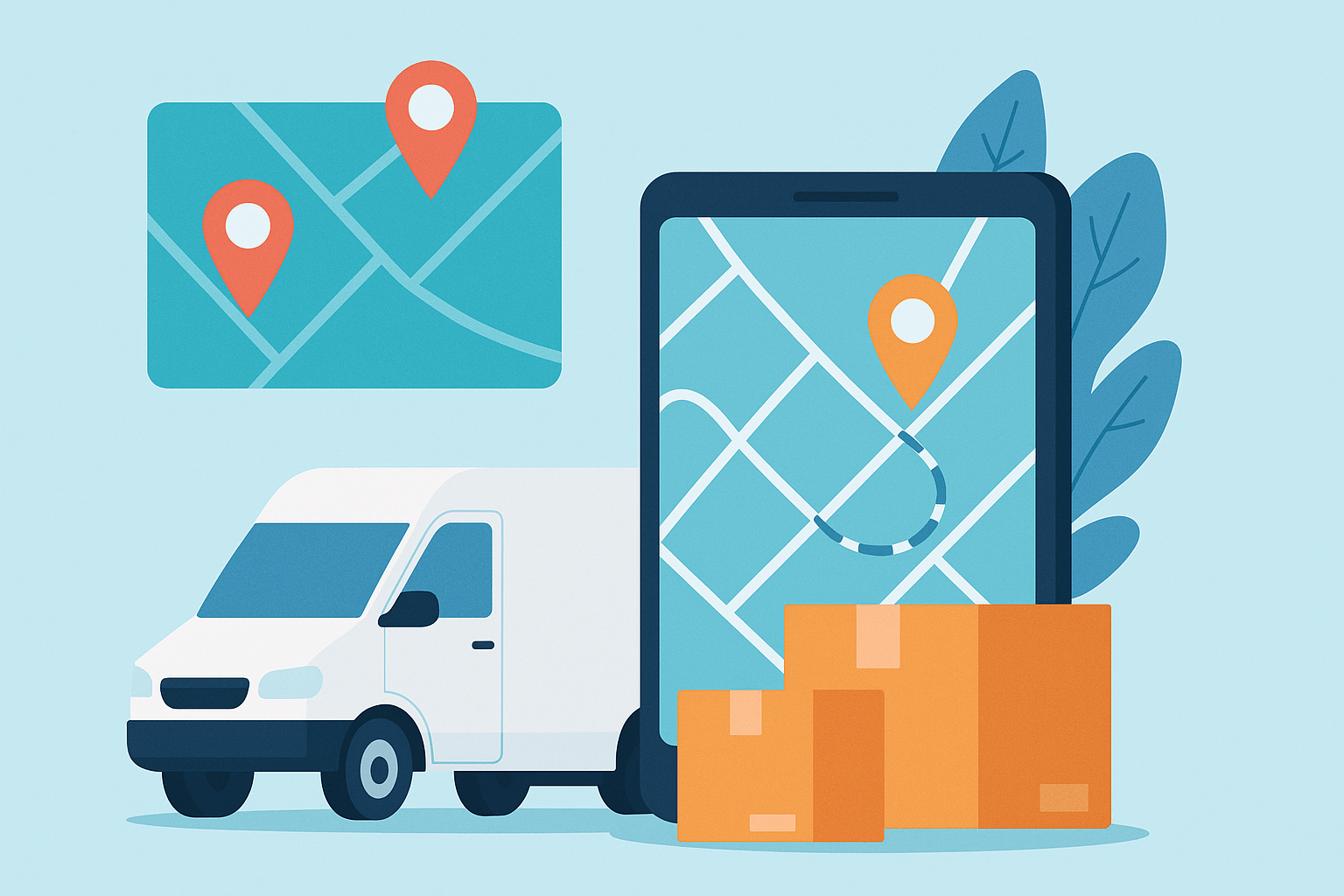In the age of instant gratification and on-demand deliveries, delivery route optimization is no longer just a “nice to have” — it’s an essential tool for businesses that rely on logistics and last-mile delivery. Whether you run a food delivery service, manage a courier fleet, or operate an eCommerce logistics company, optimizing your delivery routes can lead to significant time and cost savings.
What Is Route Optimization?
Route optimization is the process of determining the most efficient path for a vehicle to take when delivering goods or services. It considers factors such as:
- Traffic conditions
- Delivery windows
- Vehicle capacity
- Road restrictions
Contrary to popular belief, the shortest route isn’t always the best. Instead, optimization focuses on maximizing efficiency across multiple constraints.
The Rising Need for Delivery Route Optimization
With the rise of online ordering, real-time expectations, and tighter delivery timeframes, businesses are under more pressure than ever. Manual route planning or using static GPS routes isn’t enough.
Companies face challenges like:
- Fuel inefficiencies
- Missed deliveries
- Increased labor costs
- Poor customer satisfaction
This is where automated delivery route optimization comes into play.
Benefits of Delivery Route Optimization Integration
1. Reduced Fuel Consumption and Operational Costs
Less time on the road means:
- Lower fuel consumption
- Fewer hours paid to drivers
- Reduced vehicle wear and tear
🔗 Check this out: How Route Optimization Helps Cut Fleet Costs (Geotab)
2. Improved Delivery Time and On-Time Performance
Meeting customer expectations is easier when:
- Drivers avoid high-traffic areas
- Routes are automatically adjusted in real-time
- Drop-offs are planned smartly
3. Real-Time Adaptability
Advanced tools reoptimize on the fly in case of:
- Traffic incidents
- Order cancellations
- New deliveries added mid-route
4. Enhanced Driver Productivity
- Drivers don’t waste time guessing the best route
- Better planning leads to more deliveries per shift
5. Smarter Resource Allocation
You’ll know:
- How many vehicles are truly needed
- Which drivers to assign to which areas
- Where to cut excess capacity
6. Data-Driven Decisions
With route optimization analytics, you can:
- Evaluate delivery times
- Track fuel usage
- Analyze driver performance
🔗 Also read: Using Big Data in Transportation (Harvard Business Review)
Key Features of a Route Optimization Tool
When choosing a system, ensure it includes:
- Multi-stop planning
- Real-time traffic insights
- GPS and mobile app integration
- Delivery time window support
- Route analytics and reports
🔗 Explore Our Feature Page: Delivery Route Optimization Module
How Delivery Route Optimization Integration Works
Here’s a typical flow:
- Import delivery data (automated from CRM or via API)
- Set constraints (driver time windows, capacities, etc.)
- Generate optimal routes
- Push to driver apps
- Monitor & re-optimize in real-time
- Collect performance data
Industries That Benefit From Route Optimization
- E-Commerce Logistics
- Courier and Parcel Services
- Grocery and Food Delivery
- Field Services
🔗 See Who We Work With: Our Industry Solutions
Choosing the Right Route Optimization Software
Look for:
- Scalability for growing delivery volume
- Easy integration with your CRM or order system
- Mobile-friendly driver app
- Live support and regular updates
- AI/ML optimization algorithms
🔗 Need Help Choosing? Contact Our Team for a Free Consultation
Some trusted tools you can explore:
Final Thoughts
Integrating delivery route optimization into your logistics or CRM systems is not just about technology—it’s about smarter business operations.
You’ll save time, reduce costs, and keep customers happy. And in today’s competitive delivery landscape, that’s the edge you need.
Ready to Streamline Your Deliveries?
Whether you’re a logistics startup or an established player, our Route Optimization Module can be customized to your workflow.
Let’s transform your delivery operations. Talk to us today →
